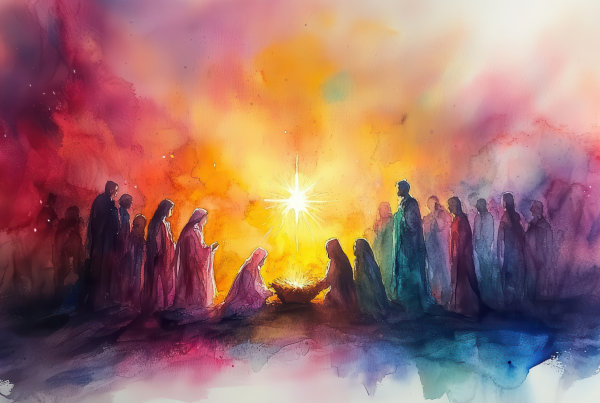On August 13, Guatemala celebrates National Corn Day. Forty percent of agricultural land in Guatemala produces corn. Almost every meal in Guate includes corn products—corn tortillas, tamales, bread, and a hot drink called “atol de elote” are some of the favorites.
Corn served as a staple crop in Guatemala for hundreds of years. Quick and efficient corn production supported the rise of other craftspeople, priests, and politicians. Ancient Mayans honored this critical food source by depicting corn on their ceramics, murals, and temple art.
Though the ancient Israelites did not grow corn, they relied on wheat and barley to support and expand their nation. As a result, the Bible is full of farming analogies. One of the most famous agricultural lessons lies in Matthew 9, at the start of Jesus’ ministry:
“Jesus went through all the towns and villages, teaching in their synagogues, proclaiming the good news of the kingdom, and healing every disease and sickness. When he saw the crowds, he had compassion on them, because they were harassed and helpless, like sheep without a shepherd. Then he said to his disciples, “The harvest is plentiful but the workers are few. Ask the Lord of the harvest, therefore, to send out workers into his harvest field” (Matthew 9:35-38).
Throughout the gospels, we catch glimpses of the crowd following Jesus. People like the paralytic lowered through a roof (Mark 2) and the ten men with leprosy (Luke 17) traveled long distances, desperate to be healed. Jesus met heartbroken parents and societal outcasts. He taught jaded religious leaders and unusual spiritual seekers. Each person was a lost sheep without a shepherd to guide, protect, and sustain them.
Matthew testifies that Jesus looked upon these needs with compassion. He saw the people of this world as grain, ripe and ready for harvest. We won’t be collected into barns but into the kingdom of God. He calls his disciples and leads them to pray, asking God to send workers into the field. The harvest is ready and plentiful. If left in the field, grain slowly begins to spoil and rot.
Jesus commissions his disciples to go out amongst the people. In fact, God calls all believers to be workers in the field, but the work can be challenging and as Jesus notes, the workers are few. Jesus said, “As you go, proclaim this message: ‘The kingdom of heaven has come near.’ Heal the sick, raise the dead, cleanse those who have leprosy, drive out demons. Freely you have received; freely give” (Matthew 10:7).
What does it look like for the kingdom of heaven to come near? The kingdom of heaven looks like our Savior, drawing close to the sick and needy. It looks like his representatives healing the sick, giving generously, and bringing peace wherever they go. We must ask ourselves, are we willing workers in the kingdom of heaven?
Like corn and wheat farmers, we cannot force grain to grow. While we might tend crops, there are always factors outside our control. Unexpected floods, freezes, pests, and thieves disrupt our best-laid plans. But the Lord of the Harvest goes before us to prepare the way. He controls the wind and the rain. He provides nutrients to the soil and seeks out workers to harvest. It is his field, where his results come to pass. Our job is to be ready and willing to work on His behalf. He will sort the harvest.
Dear Lord, as we celebrate National Corn Day may we remember the harvesters who have served us, bringing food to our table and Christ to our communities. Help us to seek and serve the lost, giving of our time, talents, and treasure to bring your children home. Amen.





